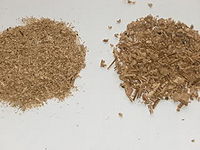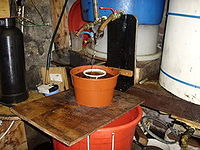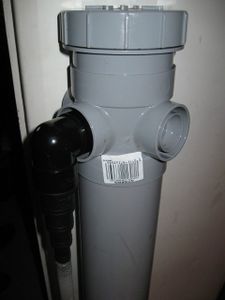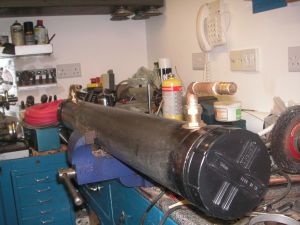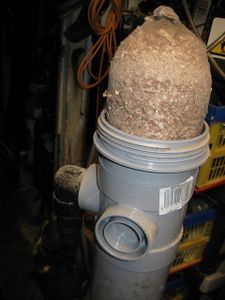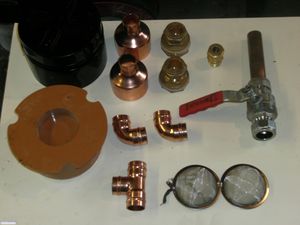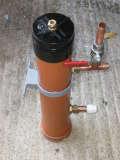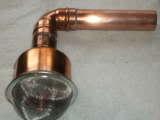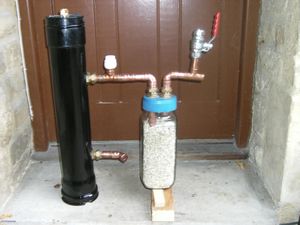Dry washing
An alternative to water washing is dry washing, so called because no water is used in the removal of soaps from the biodiesel.
This is considered a "final polish" stage, after the majority of soap has been allowed to settle out naturally following Demething.
Ion exchange resin
Because the ASTM D6751 standard for biodiesel has a greater tolerance for free fatty acid content than soap, an ion exchange resin can be employed to convert any remaining soap in the fuel into free fatty acids.
This is, however, to the detriment of the acid number of the final product.
Hardwood
If the biodiesel is passed through a tower packed with hardwood shavings, the soaps become trapped within the coarse structure of the shavings and sawdust. Any trace methanol is also absorbed by the medium.
Typically, a 10 litre tower should have biodiesel pumped or gravity fed through it, bottom to top, at a rate of 3 litres per minute. If the fuel is well settled before filtering, remove the majority of soap, 10 litres of medium should be capable of filtering 1000 litres of biodiesel.
When a tower has been freshly repacked with shavings, at first the flow of biodiesel will be contaminated with sawdust and possibly a small amount of resin. So initially, prime the tower by recirculating a small amount of biodiesel until the flow runs clear (the tower trapping any sawdust that escaped). The first batch passed through the tower should be settled before use, in case there are any wood resins present (these will drop out).
Do not use softwood wood shavings as these will be rich in resins.
- Home made hardwood towers
How to make a drywash tower
This is just one version of many dry wash towers.
My version:
I used access caps either end to make emptying/refilling easier. It is 20" high 5" round but could be any size really, so a total capacity of about 6 lts/4.5lts of ecopure/shavings. There is a ball valve on the top inlet which lets the bio go back to the main tank and so adjusts the flow rate. On top is an adjustable press release valve which I have since found is not needed. The inlet and outlets come out via a drilled out 22ml tank connector.
For glue I used osma solvent weld. The part the tea strainer fits to is a 54mlx22ml end feed reducer bes no7961. If you heat the area where you are fitting the tank fitting with a hot air gun it will pull flat as you do it up giving a good fit and when it cools it regains it's rigidity. An idea suggested on the VOD forum is to put the shavings into one or more stockings/tights (making two or more "sausages")which makes it easier to empty, if you use the idea you should be able to do away with the tea strainers as the stockings/tights will retain the shavings. Finish the inlet and outlet pipes flush with the inside so that they dont snag the stockings/tights.
Parts
- 110ml pipe x 3mt £9.05
- access cap socket tail £8.32 x 2
- 22mm comp tank fittings £1.75 x 2
- 54x22mm end feed reducer £3.22 x 2
- end feed 90,22 mm £0.40 x 2
- end feed 22mm equal tee £0.71
- spring safety valve 1/2" bsp £1.32
- Gate valve 22mm £2.86
- about 12 " 22 mm copper pipe
- 1 X tea strainer £3.00
I made a pre filter to take some oak shavings which prolongs the life of the tower.
It catches most of the soaps and I can keep an eye on it with it being clear.
- click to enlarge
